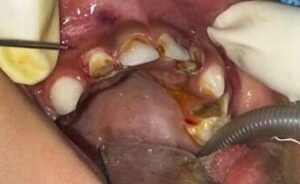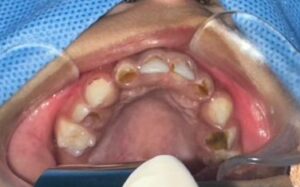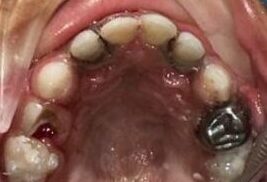Hospital Dentistry For Persons With Special Needs
Who needs special-care Dentistry?
Everyone needs to be able to have dental care.
❖ People with physical disabilities may have problems getting into the surgery or even into the dental chair.
❖ People with learning disabilities may become overanxious at the thought of going to the dentist or may need extra reassurance.
❖ People suffering from severe medical problems may need extra precautions or care.



FAQ'S
Oral diseases can have a direct and devastating impact on the general health and quality of life. Individuals with certain systemic health problems or conditions such as compromised immunity (e.g., malignancies, human immunodeficiency virus, history of organ transplantation) or cardiac conditions at a high risk for infective endocarditis may be especially vulnerable to the effects of oral diseases.
Practices should offer facilities for wheelchair users, including access to the practice, and ground-floor surgeries. If wheelchair access is particularly important, contact the surgery and ask if this is something they are prepared for. Some clinics have specially adapted surgeries for patients with mobility problems.
Children with learning disabilities or other medical conditions may be referred to a specialist dental service by their doctor or dental team. It is important to consult a Dentist at an early age. A low-sugar diet is also important and make sure they have Fizzy drinks, Sugary foods just at mealtimes.
It is important to visit the dental team regularly. This would normally be every six months, but some people need to visit less often and others more often. The dental team will be able to tell you.
Many patients with disabilities have to rely on medication to keep their condition under control. It is therefore important to ask the doctor to prescribe sugar-free medicines, especially if they are syrups. It is important to tell the dental team about any medication that the patient is taking, in case the treatment is affected or the team need to take any extra precautions.
It is recommended that children up to three years old use a toothpaste that contains at least 1000ppm (parts per million) of Fluoride. Over the age of three, a Toothpaste that contains 1350 to 1500ppm of Fluoride is recommended. If the Dentist thinks that the patient is particularly at risk of tooth decay, they may prescribe a toothpaste or Fluoride varnish which contains a higher level of fluoride to offer more protection.
Not all oral health professionals are trained in handling persons with special needs. Because of dental anxiety, a lack of understanding of Dental care, Oral Aversion, or Fatigue from multiple medical visits and procedures, children with SHCN may exhibit resistant behaviours. These behaviours
can interfere with the safe delivery of dental treatment.
